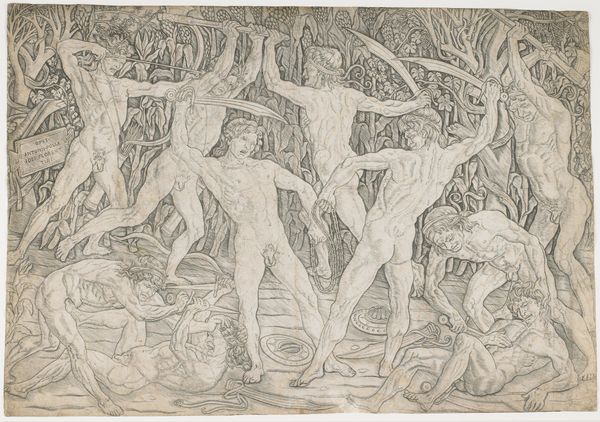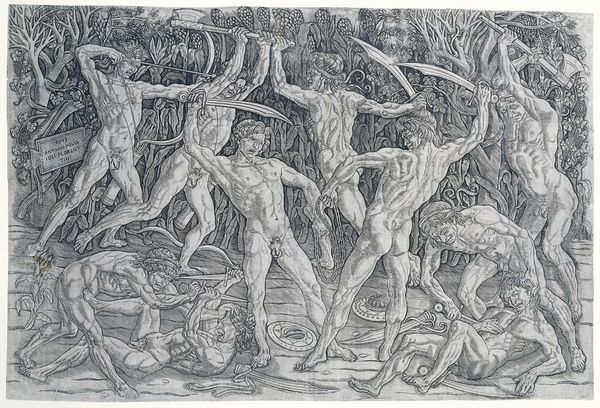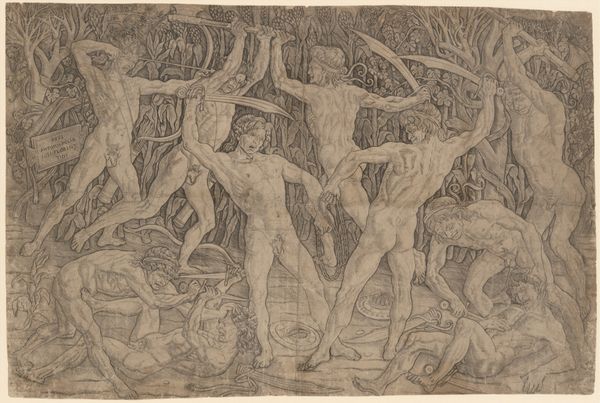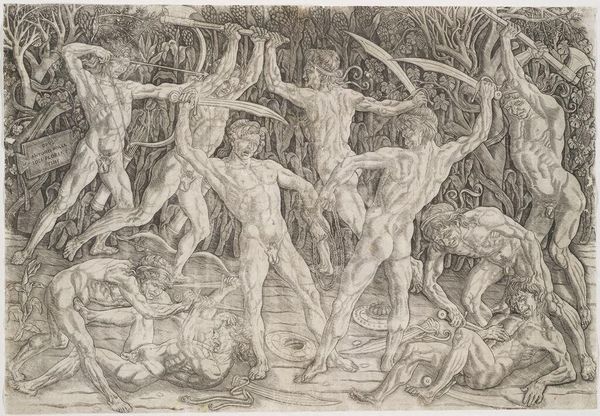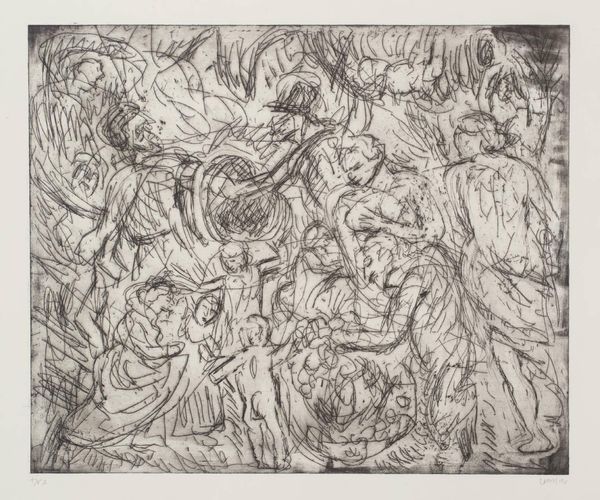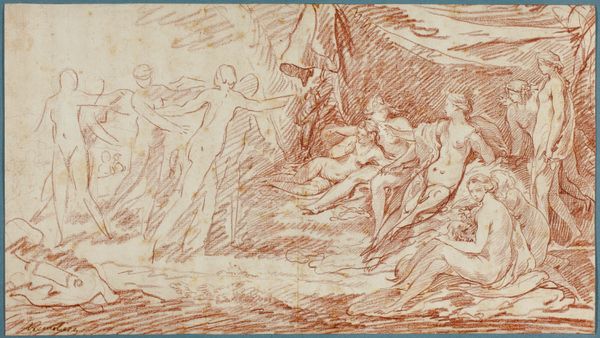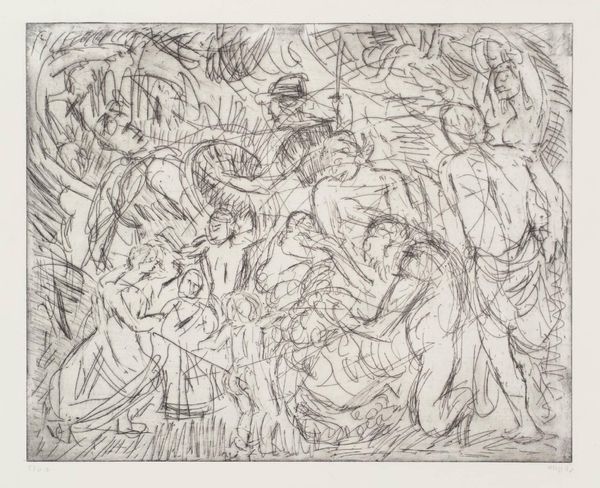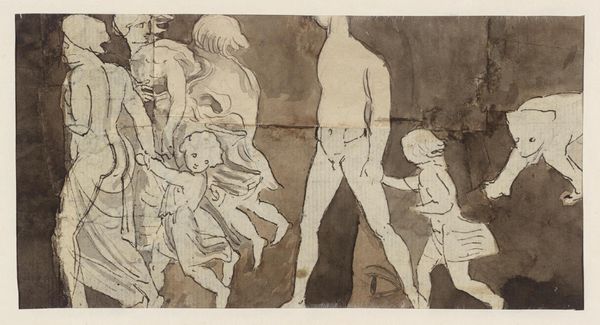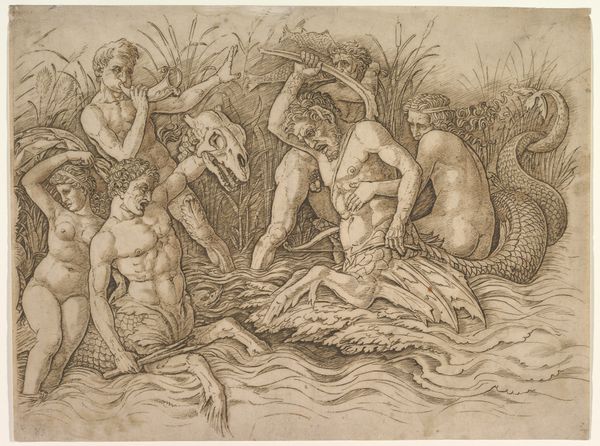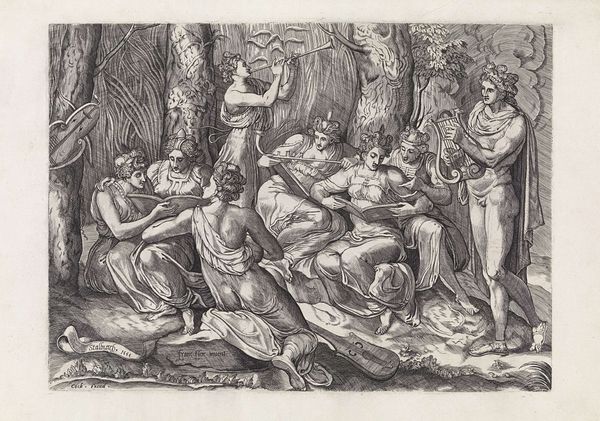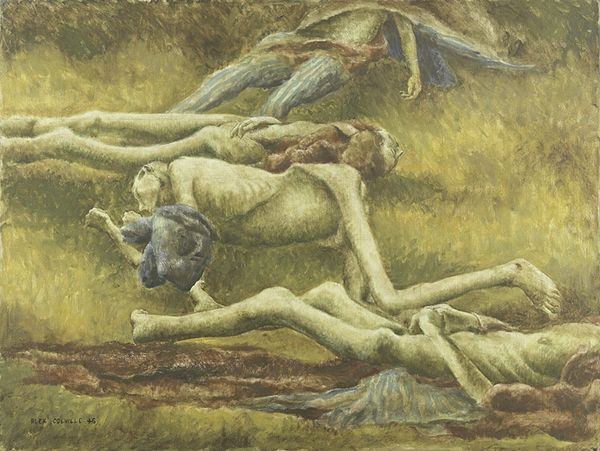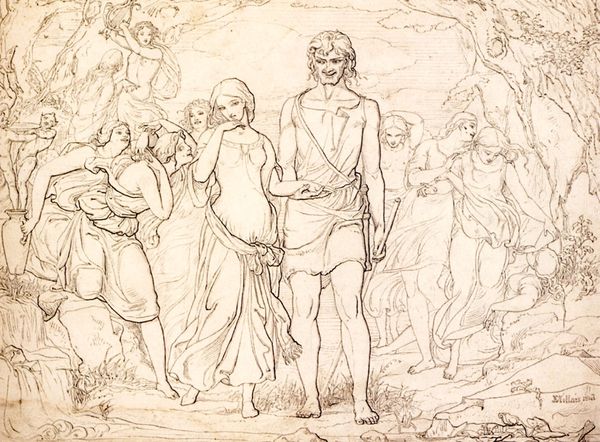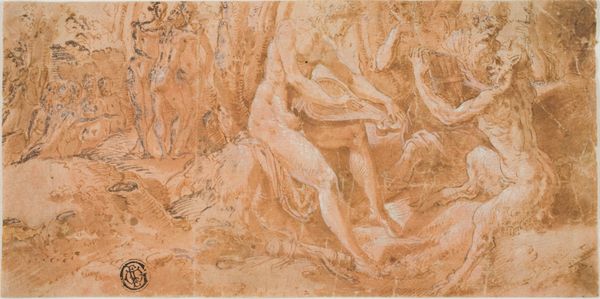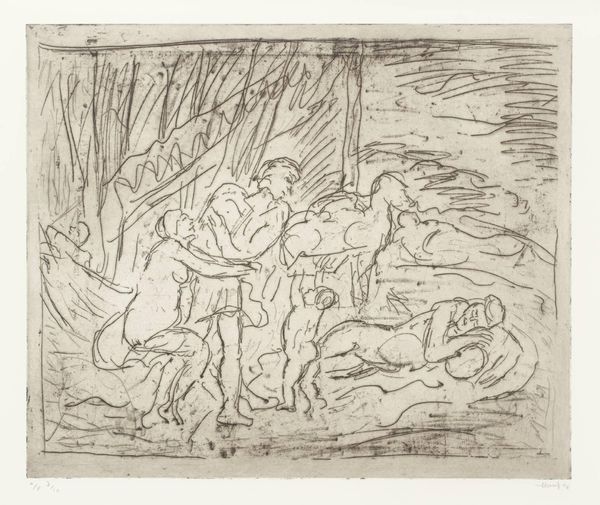
drawing, print, paper, ink, engraving
#
drawing
# print
#
figuration
#
paper
#
ink
#
ink drawing experimentation
#
geometric
#
history-painting
#
italian-renaissance
#
nude
#
engraving
Dimensions: 404 × 589 mm
Copyright: Public Domain
Editor: This is Antonio Pollaiuolo's "Battle of the Naked Men," made around 1489 to 1495. It's an engraving printed in ink on paper. What strikes me is how dynamic and almost frenzied it feels, yet it's all rendered in such precise detail. What symbols or cultural meanings do you find resonating in this piece? Curator: The bodies are really the core. Note how Pollaiuolo meticulously renders their musculature and the torsion of their bodies. Think of the Renaissance fascination with classical antiquity and rediscovering the human form, specifically through pieces like these. He's invoking this sense of idealized beauty but sets it against the primal energy of combat. Don’t you find this tension compelling? Editor: I do. It’s almost as if he is capturing the intensity of conflict but then containing it within an idealized aesthetic. Are there historical connotations or perhaps a specific story it is illustrating? Curator: Not a specific story, as far as we know. But battle scenes were prevalent, embodying themes of civic duty, valor, and of course, power. These figures are unclothed; stripped down to reveal raw, unadorned humanity engaged in a test of strength. Consider too, the symbolism of weapons. Swords aren't just tools, they're extensions of male prowess. Their design echoes through time, what do you see? Editor: Well, it’s all interesting…it does add so many layers! I never thought about weapons as an extension of masculine power, even outside the frame of a “battle.” Curator: Precisely. Symbols are incredibly adaptable, carrying complex histories. Editor: Thanks for pointing that out. Looking again, I see now how it combines so much more depth beyond the literal surface.
Comments
No comments
Be the first to comment and join the conversation on the ultimate creative platform.
